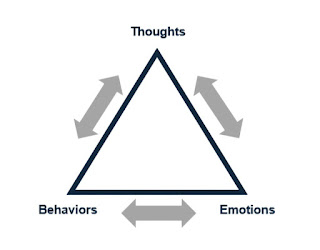Fathima sat by the window, staring at the rain outside. Her mind was full of doubts. No matter how hard she tried, she always felt like she was falling short.
“Why can’t I get it right?” she thought.
“Why am I never enough?”
Her heart felt heavy, weighed down by the pressure of mistakes she couldn't erase.
Just then, her phone buzzed. It was a message from
Mustafa, her older brother. It was short but warm:
“Fathima, meet me outside. I need to show you something.”
With a sigh, she wiped away her tears and walked outside to meet him. Mustafa had always been the calm one, the person who made her feel safe when the world felt overwhelming. Today, he wasn’t smiling, but his eyes were kind, full of understanding.
He led her to a park bench and sat beside her. He placed a hand on her shoulder.
“Fathima, you are enough. I want to show you how to remember that.”
Confused, Fathima asked,
“But how? I feel like I can’t do anything right.”
Mustafa smiled gently and said,
“Place your hand over your heart. Close your eyes. Just breathe.”
Fathima hesitated but followed his instructions. She placed her hand over her heart, closed her eyes, and took a deep breath. She could feel her heartbeat. For a moment, everything went quiet. The storm inside her began to calm. It wasn’t magic, but something about that simple touch brought peace she hadn’t felt in a long time.
“That’s your self-compassion.”
Mustafa said softly.
“It’s not about being perfect. It’s about being kind to yourself when things go wrong. You deserve that kindness, especially from yourself.”
Fathima opened her eyes. She was still unsure, still full of doubt. “But how do I forgive myself when I feel like I’m not enough?” she asked.
Mustafa looked at her with quiet belief. “It’s not about forgiving everything all at once. It’s about small steps. Every time you fall, be gentle with yourself. Take a deep breath, put your hand over your heart, and remind yourself: ‘I am enough.’”
Fathima wasn’t sure if she could do it, but she wanted to try. The next morning, she placed her hands on her heart, closed her eyes, and whispered, “I am enough.” It felt strange, but comforting. The stress seemed to melt away, just for a moment.
Each day, she practiced. “I am enough.” Slowly, the weight of her failures didn’t feel as heavy. The voice in her head that told her she wasn’t good enough began to fade. Fathima started to believe the words she said to herself.
One evening, standing in front of her mirror, Fathima smiled. For the first time in a long time, she saw herself through kinder eyes. “I am enough,” she whispered again, this time with full confidence.
Moral of the Story:
You are enough, just as you are. When life feels overwhelming and mistakes seem impossible to fix, remember to be kind to yourself. A simple touch, a deep breath, and a few kind words can heal the storm inside. You don’t need to be perfect. You just need to believe that you are worthy of love, starting with your own Self LOVE.
RESEARCH SAYS: Saying things like 'I am enough' or 'I am calm' helps retrain your brain to focus on positivity!
.jpeg)





 You see fun posts on social media.
You see fun posts on social media.


.jpg)
.jpg)







